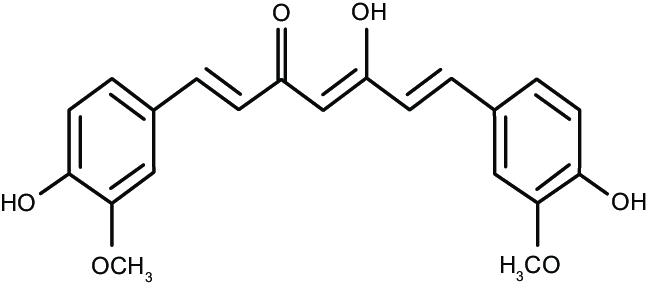What are the health benefits of curcumin on cancer?

This post highlights some of the health benefits of curcumin on cancer. Curcumin is the yellow pigment in turmeric powder, which is a component of curry. It has antioxidant, antibacterial and anticancer properties. It has the potential to prevent a wide variety of inflammatory diseases including cancer, diabetes, cardiovascular diseases, arthritis, Alzheimer’s disease, etc. However, even if you eat curry often, you may not get enough curcumin from food alone. This is because of its poor water solubility, rapid elimination from the body and low content in turmeric powder. A number of formulations of supplements are now available in the market.
Health benefits of curcumin
Studies using cultured cells and animal models showed that curcumin interacts with multiple cellular pathways that affect the growth and migration of cancer cells. It has synergistic effect with traditional anti-cancer therapies and protects organ damages by chemotherapy-induced toxicities. These make it attractive as complementary or alternative anti-cancer treatment. Its anti-inflammatory and antioxidant effects will reduce tumor formation and progression. It is able to kill cancer cells by inducing apoptosis (programed cell death). Furthermore, it also decreases cancer cell invasion and migration. Therefore, it inhibits metastasis.
Phase I and II clinical trials are promising. It has low toxicity to human body. Phase III trials are now under way. One main problem with curcumin is its low solubility in water, and hence its poor absorption and delivery through the blood vessels. Its rapid elimination by the liver also contributes to its low bioavailability in human body. One may not get the anti-cancer benefits of curcumin simply by eating curry. Many formulations are now being tested to increase its bioavailability. These include use of nanotechnology, use of emulsifying agent or blending with turmeric oils or piperine (black pepper extract). Furthermore, creating metallocyclic complex with platinum has increased its water solubility and effectiveness. Synthesis of more stable analogs of curcumin is also being investigated.
Reference:
Formulations of Curcumin
Curcumin is a major member (75%) of curcumoids in the powder of the rhizome of turmeric (Curcuma longa). The average content of curcumin in turmeric powder is about 3.14% by weight. Furthermore, its low absorption rate and rapid elimination from the body by liver make it impossible to reach the beneficial level through diet alone. Many formulations are now available with improvement on its bioavailability by forming complex with piperine (black pepper extract), cylodextrin, liposome, phospholipid (phytosome) or using nanoparticle technology.
The recently reviewed brands are: LongVida, MicroActive Curcumin, Micronized Curcumin, NovaSol, CurcuWin, Biocurcumax (BCM-95), Curcumin C3 Complex with Bioperine, Cavacurcumin, Theracurmin, CurQfen, and Meriva. Three of them, LongVida, NovaSol and CurcuWin, have higher bioavailability than the rest. They are either proprietary water-soluble formulation or water dispersible micelles. They exhibit 100-fold higher bioavailability than unformulated curcumin.
Reference:
I am curious to find out what blog system you are working with?
I’m having some minor security issues with my latest
blog and I would like to find something more risk-free. Do you have
any recommendations?
I am using All in One WP Security, available as a plugin. You need to go through the settings, so that all comments need to be approved by you before they appear on the blog.